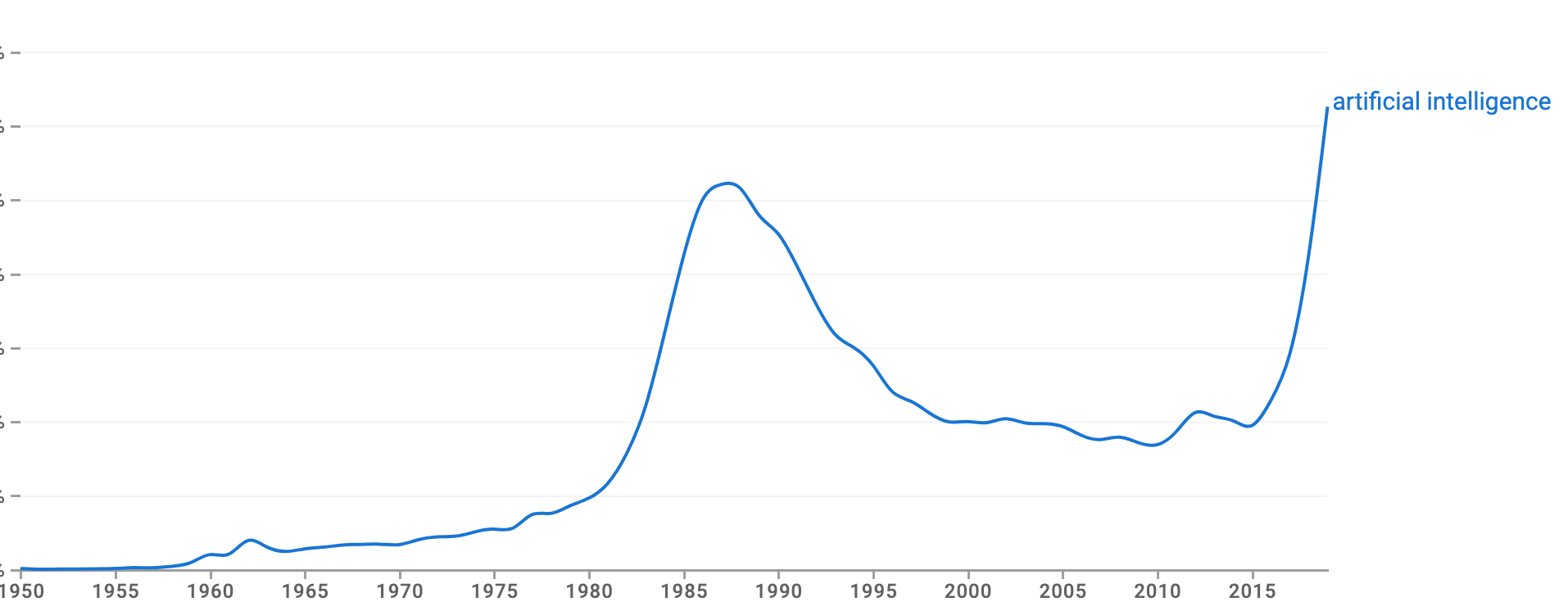The Google Books ngram plot for "artificial intelligence" offers a graph of AI's culturomics:

According to the OED, the first use of the term artificial intelligence was in a 13-page grant application by John McCarthy, Marvin Minsky, Nathaniel Rochester, and Claude Shannon, "A proposal for the Dartmouth summer research project on artificial intelligence", written in the summer of 1955:
We propose that a 2 month, 10 man study of artificial intelligence be carried out during the summer of 1956 at Dartmouth College in Hanover, New Hampshire. The study is to proceed on the the basis of the conjecture that every aspect of learning or any other feature of intelligence can in principle be so precisely described that a machine can be made to simulate it. An attempt will be made to find how to make machines use language, form abstractions and concepts, solve kinds of problems now reserved for humans, and improve themselves. We think that a significant advance can be made in one or more of these problems if a carefully selected group of scientists work on it together for a summer.
The proposal uses the phrase repeatedly without quotation marks, capitalization, or any other indication of its status as a neologism, suggesting that it was in common conversational usage before that (apparently) first publication, and/or that the authors thought its compositional meaning was obvious.
There's no question that the concept had been under discussion for a decade or so at that point, with analogous ideas to be found hundreds of years earlier. And there are older uses of the phrase "artificial intelligence", in interestingly divergent contexts, also going back hundreds of years.
Read the rest of this entry »





